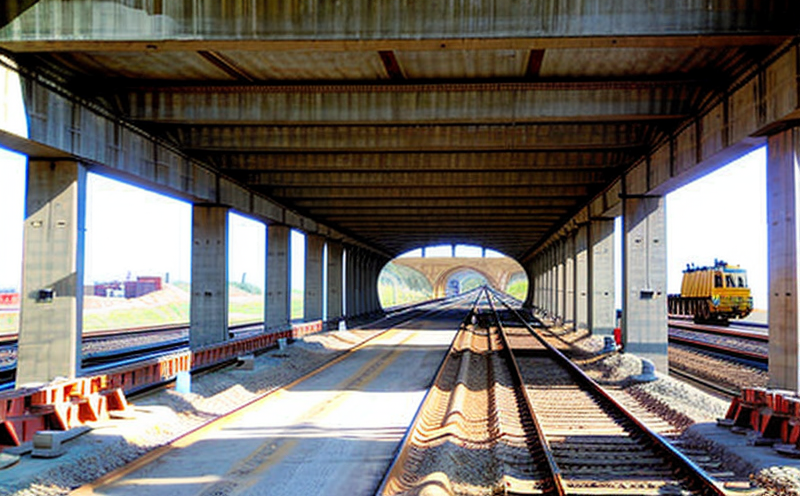Structural testing for bridge and tunnel constructions
The Crucial Role of Structural Testing in Bridge and Tunnel Constructions Ensuring Safety and Efficiency
As the backbone of modern infrastructure, bridges and tunnels play a vital role in connecting communities, facilitating trade, and promoting economic growth. However, their construction requires meticulous planning, precise execution, and rigorous testing to ensure safety, durability, and efficiency. This is where Structural Testing for Bridge and Tunnel Constructions comes into play a specialized laboratory service thats essential for businesses involved in infrastructure development.
At Eurolab, we understand the complexities of bridge and tunnel constructions and the significance of reliable structural testing. Our state-of-the-art laboratory services are designed to provide accurate, timely, and cost-effective solutions that meet the evolving needs of the industry. In this article, well delve into the world of Structural Testing for Bridge and Tunnel Constructions, exploring its benefits, key advantages, and frequently asked questions.
What is Structural Testing for Bridge and Tunnel Constructions?
Structural testing for bridge and tunnel constructions involves a comprehensive series of laboratory tests designed to evaluate the structural integrity, material properties, and performance of bridges and tunnels. These tests are conducted on samples collected from the construction site, allowing engineers and architects to assess the reliability and safety of their designs.
The primary objectives of Structural Testing for Bridge and Tunnel Constructions include
Material characterization Understanding the mechanical properties of materials used in bridge and tunnel constructions.
Structural analysis Evaluating the load-carrying capacity, stress distribution, and deformation characteristics of bridges and tunnels.
Durability assessment Determining the resistance of structures to environmental factors such as corrosion, erosion, and temperature fluctuations.
Advantages of Structural Testing for Bridge and Tunnel Constructions
At Eurolab, weve identified several key benefits that our Structural Testing services offer
Key Benefits
Enhanced Safety Our rigorous testing protocols ensure that bridges and tunnels meet or exceed regulatory standards, reducing the risk of accidents and injuries.
Improved Efficiency By identifying potential issues early on, engineers can make informed design decisions, minimizing costly revisions and delays.
Increased Durability Accurate material characterization and structural analysis enable the development of robust structures with extended lifespans.
Reduced Maintenance Costs Regular testing helps identify areas requiring maintenance or repair, reducing overall maintenance expenses.
Additional Advantages
Compliance with Regulations Our services ensure that bridges and tunnels meet local building codes, regulations, and international standards (e.g., AASHTO, Eurocode).
Cost Savings By preventing costly repairs and redesigns, our Structural Testing services can lead to significant cost savings for construction companies.
Competitive Advantage Companies that prioritize structural testing can differentiate themselves from competitors by demonstrating a commitment to quality and safety.
Benefits for Bridge and Tunnel Owners
Extended Structure Lifespan Our testing services help identify areas requiring attention, ensuring bridges and tunnels remain safe and functional over their lifespan.
Enhanced Public Confidence By prioritizing structural testing, owners can demonstrate their dedication to public safety, fostering trust and confidence in the infrastructure.
QA Section
Q1 What types of materials are typically tested for bridge and tunnel constructions?
A1 At Eurolab, we test a wide range of materials, including concrete, steel, asphalt, and composite materials. Our expertise extends to evaluating both conventional and innovative materials used in modern bridge and tunnel construction.
Q2 How do I prepare samples for structural testing at Eurolab?
A2 To ensure accurate results, please follow our sample preparation guidelines, which include
Collecting representative samples Ensure that the samples collected are representative of the structure as a whole.
Proper packaging and storage Store samples in sealed containers or bags to prevent contamination or damage.
Q3 What is the typical turnaround time for structural testing services?
A3 Our experienced team works efficiently to ensure prompt results. Typical turnaround times vary depending on the test type, with most tests completed within 1-4 weeks.
Q4 Can I request customized testing protocols tailored to my specific project needs?
A4 Absolutely! At Eurolab, we pride ourselves on flexibility and adaptability. Our team will work closely with you to develop a customized testing plan that addresses your unique project requirements.
By investing in Structural Testing for Bridge and Tunnel Constructions, businesses can mitigate risks, ensure compliance, and unlock cost savings. As a trusted partner in the industry, Eurolab is committed to providing accurate, timely, and cost-effective solutions that meet the evolving needs of bridge and tunnel construction projects. Contact us today to learn more about our comprehensive laboratory services.




